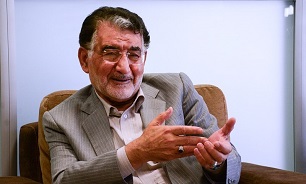Iran to Face No Problem in Selling Oil Even without EU Payment System
 In remarks released on Saturday, Ale-Ishaq pointed to Washington’s recent sanctions against Tehran and said the US had wrongly thought it would be able to launch an international campaign against the Islamic Republic but with the coming into effect of the sanctions, some European countries expressed sorrow over the issue, which indicated that they do not want to abide by the embargoes.
In remarks released on Saturday, Ale-Ishaq pointed to Washington’s recent sanctions against Tehran and said the US had wrongly thought it would be able to launch an international campaign against the Islamic Republic but with the coming into effect of the sanctions, some European countries expressed sorrow over the issue, which indicated that they do not want to abide by the embargoes.
“This issue is definitely a defeat for the US sanctions and a success for Iran,” the official added.
He further pointed to the so-called Special Purpose Vehicle (SPV), the EU’s mechanism aimed at facilitating trade with Iran in the era of US sanctions, and said even if the EU plan is not implemented, Iran will face no problem in selling oil and purchasing goods.
“However, we cannot say that the sanctions would have no effect (on Iran’s trade),” the official went on to say.
The European Union has vowed to counter US President Donald Trump’s renewed sanctions on Iran, including by means of a new law to shield European companies from punitive measures.
On May 8, the US president pulled his country out of the Joint Comprehensive Plan of Action (JCPOA), the nuclear deal that was achieved in Vienna in 2015 after years of negotiations among Iran and the Group 5+1 (Russia, China, the US, Britain, France and Germany).
Following the US exit, Iran and the remaining parties launched talks to save the accord.
Trump on August 6 signed an executive order re-imposing many sanctions on Iran, three months after pulling out of the Iran nuclear deal.
He said the US policy is to levy “maximum economic pressure” on the country.
The second batch of US sanctions against the Islamic Republic took effect on Monday, November 5.
Message end/
